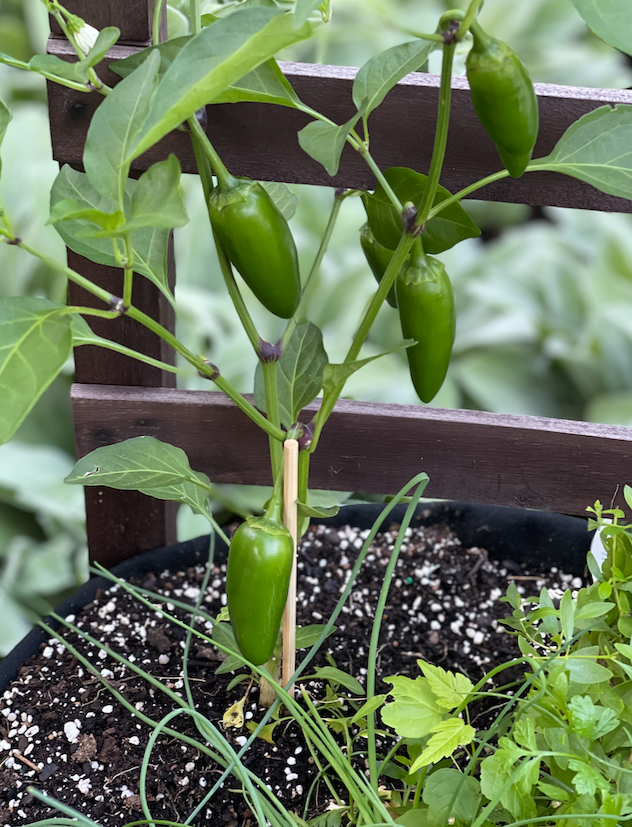Organic Vs. Synthetic Fertilizers: Which Is Best for Supporting Healthy Pepper Plants?
In the realm of nurturing healthy and balanced pepper plants, the selection in between organic and synthetic plant foods stands as a critical choice with far-reaching implications. While both options purpose to provide important nutrients to sustain plant development, the nuances of their influence on the soil, plant wellness, and the atmosphere stimulate an argument that echoes throughout the horticulture community. Comprehending the unique advantages and prospective mistakes of each plant food kind is crucial for pepper cultivators seeking to maximize their returns while maintaining a lasting and eco-conscious strategy.
Advantages of Organic Fertilizers
Organic fertilizers supply an environmentally-friendly and sustainable technique to nourishing pepper plants, providing important nutrients without making use of synthetic chemicals. These natural plant foods are stemmed from organic sources such as garden compost, manure, bone meal, and seaweed, advertising dirt wellness and biodiversity. Unlike synthetic fertilizers, natural options release nutrients gradually, guaranteeing a constant and balanced supply for pepper plants to flourish.
One substantial benefit of organic fertilizers is their capability to enhance dirt structure and water retention. By improving dirt health and wellness, natural plant foods advertise useful microbial activity, which assists in nutrient uptake by pepper plants. In addition, natural plant foods reduce the threat of chemical run-off, shielding water resources from air pollution and protecting the atmosphere.
Additionally, organic plant foods contribute to long-term dirt fertility by advertising the development of useful dirt organisms. These organisms assist damage down raw material, launching nutrients in a kind that is quickly accessible to pepper plants. best fertilizers for peppers. By cultivating a healthy and balanced dirt community, natural fertilizers support sustainable pepper cultivation practices that benefit both plants and the atmosphere
Downsides of Artificial Plant Foods
Synthetic plant foods, in contrast to their natural counterparts, present various drawbacks when used to nurture pepper plants, affecting both plant wellness and ecological sustainability. One major disadvantage of synthetic plant foods is their tendency to leach nutrients from the dirt rapidly.
Furthermore, the overuse of synthetic plant foods can add to water air pollution. Excess plant foods not absorbed by plants can get rid of into water bodies, resulting in eutrophication, where algae blooms deplete oxygen degrees in the water, hurting water life. Synthetic plant foods are commonly acquired from non-renewable resources, such as fossil fuels, adding to carbon exhausts and ecological destruction throughout their manufacturing.
Nutrient Absorption Contrast
Effective nutrient absorption plays a vital duty in the general health and development of pepper plants. When comparing natural and artificial fertilizers in terms of nutrient absorption, natural plant foods have the benefit of providing a much more well balanced and slow-release source of nutrients (best fertilizers for peppers). Organic fertilizers contain a variety of macro and trace elements that are not just helpful for the plants yet additionally advertise healthy soil microbial task, which aids in nutrient uptake. On the various other hand, synthetic fertilizers typically provide a fast release of nutrients, which can bring about leaching and overflow, leading to lower nutrient absorption prices by the plants.
Furthermore, natural fertilizers enhance soil framework and water retention capacity, permitting pepper plants to gain access to nutrients a lot more effectively. This better soil quality promotes origin development, making it possible for better nutrient absorption. Synthetic plant foods, although originally Go Here improving plant growth because of their high nutrient focus, might impede long-lasting nutrient click here for more absorption by degrading dirt health and wellness in time.
Environmental Effect Considerations

On the various other hand, artificial plant foods, although frequently even more focused and instantly available to plants, can have harmful results on the atmosphere if not applied properly (best fertilizers for peppers). Their production calls for high energy inputs, causing greenhouse gas emissions and adding to climate modification. The runoff of excess synthetic plant foods can infect water resources, leading to eutrophication and harming marine communities.
Finest Fertilizer Practices for Peppers
To achieve this, it is important to adhere to finest fertilizer techniques customized to the certain demands of pepper plants. One critical practice is to execute a soil examination prior to using any plant foods.
Another important practice is to feed pepper plants at the correct time. Generally, peppers benefit from obtaining plant food at growing and afterwards once again when they start to flower. Over-fertilizing can cause nutrient inequalities and harm the plants, so it is essential to follow advised application prices.
Furthermore, choosing a balanced plant food with an NPK proportion that fits pepper plants' demands is basic. Inevitably, incorporating synthetic and natural fertilizers carefully can aid support healthy and balanced pepper plants while reducing environmental impact.
Final Thought

Organic fertilizers supply a sustainable and environmentally-friendly technique to beneficial pepper plants, supplying crucial nutrients without the usage of synthetic chemicals. Unlike synthetic plant foods, organic options release nutrients slowly, making certain a constant and balanced supply for pepper plants to thrive.
Artificial fertilizers, in contrast to their natural equivalents, posture different downsides when made use of to nurture pepper plants, influencing both plant health and wellness and ecological sustainability. When comparing synthetic and natural plant foods in terms of nutrient absorption, organic plant foods have the advantage of giving an extra well balanced and slow-release source of nutrients.In addition, natural fertilizers enhance dirt structure and water retention ability, permitting pepper plants to access nutrients much more successfully.